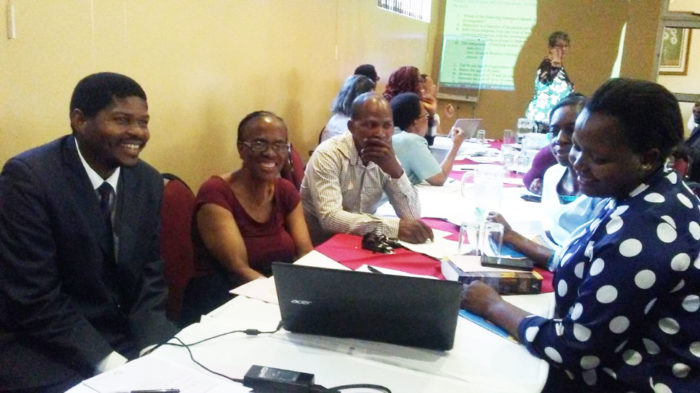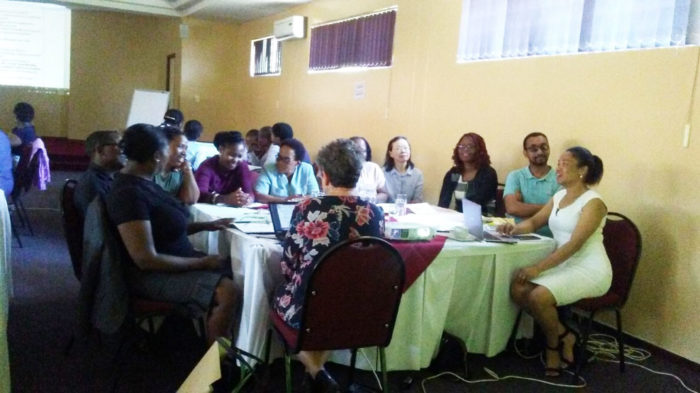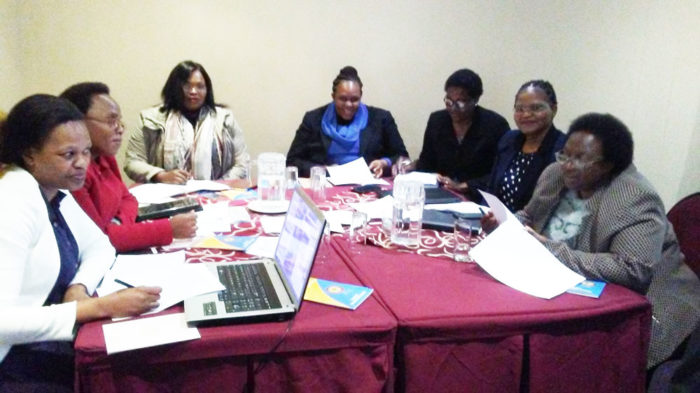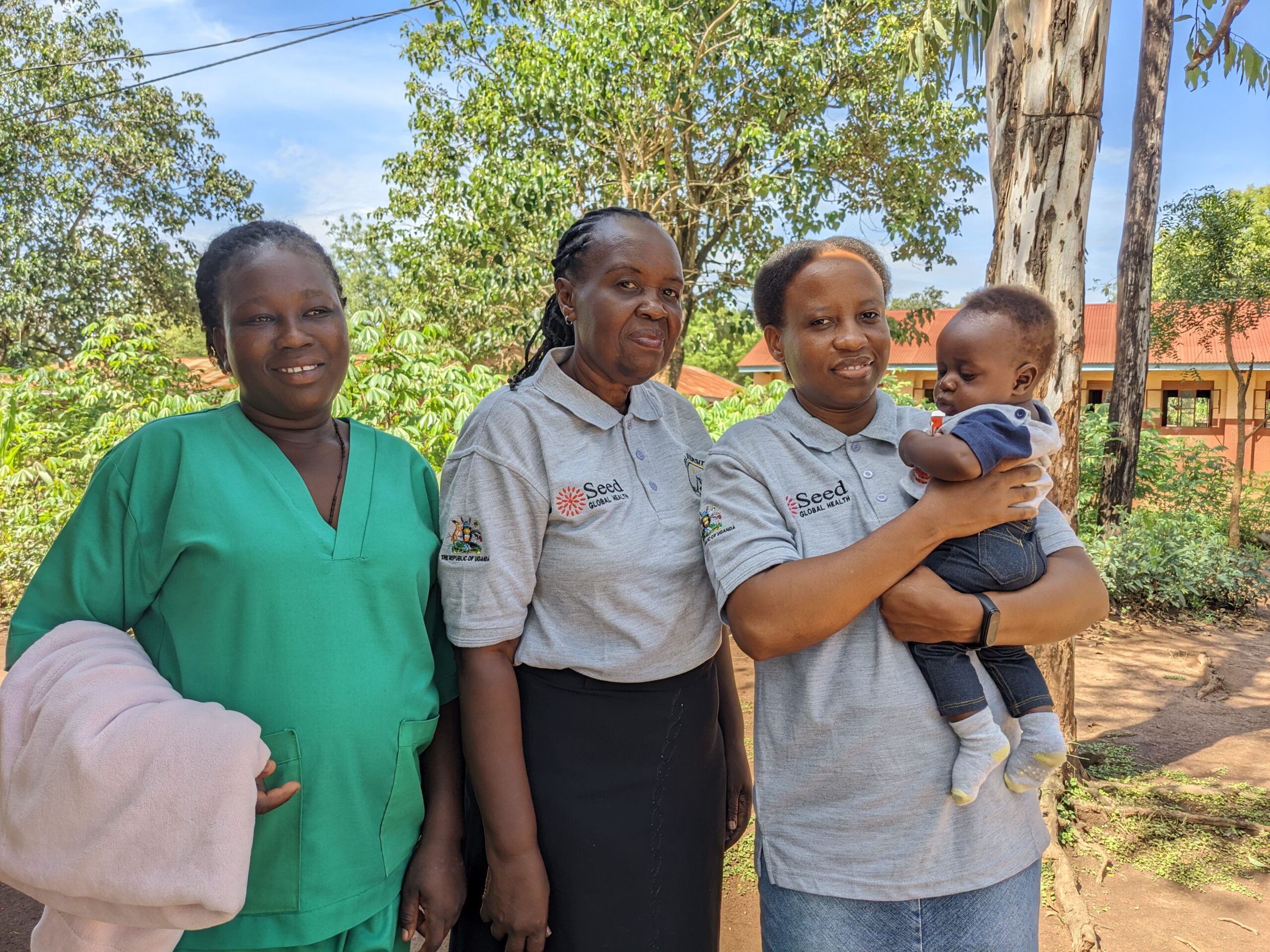Entry-to-Practice Exam: Mapping the Way Forward for Nursing Licensure in Eswatini
This post was authored by Mrs. Nkosinathi Nkwanyana and Helen Kuebel, two nurses that we have had the honor of working with in Eswatini. Mrs. Nkosinathi Nkwanyana is the current Registrar and Project Leader at the Eswatini Nursing Council and Helen Kuebel, MSN, RN is a Nursing Education Consultant and former Seed Educator. They wrote this blog in celebration of International Nurses Day and to outline the work that is being done to ensure nurses in Eswatini are prepared to provide communities with the care they need.
————–
Health professionals are the backbone of strong health systems. Nurses, in particular, are critical to linking communities to much-needed care and ensuring health for all, making the strengthening of the nursing profession a key priority. Recognizing the important role that nurses play, the Eswatini Nursing Council (ENC) surveyed nurses in the Kingdom with two years or less experience post-graduation to evaluate their competencies. The results showed that new graduates had gaps in knowledge, skills, and abilities in general nursing and midwifery, including the provision of HIV/AIDS and TB care.
Under the leadership of Dr. Glory Msibi, former ENC Registrar and current Deputy Chief Nursing Officer, Ministry of Health, and Mrs. Nkosinathi Nkwanyana, current Registrar and Project Leader, the ENC set out to bridge this gap. In 2017, with assistance from Seed Global Health Nursing Education consultant Helen Kuebel, MSN, RN, the ENC began a four-year project focused on creating an entry-to-practice licensure exam. The goal with this is to ensure that nursing program graduates have the required skills—and that international nurses seeking to work in Eswatini are well-equipped—to deliver high-quality care to communities.

The Mental Health Team with representatives from Southern Africa University, University of Eswatini, Good Shepherd College of Nursing, and Eswatini Christian Medical University.
Strong stakeholder partnerships and collaborations are key to the success of this initiative. To that end, we worked with the ENC to identify Campus Champions from the four nursing programs in the Kingdom to help with the efforts. These representatives included Dr Colile Dlamini, University of Eswatini; Hlengiwe Mohale, Southern Africa Nazarene University; Dr Khombi NKonde, Eswatini Medical Christian University; and Sibonile Dlamini, Good Shepherd College of Nursing. Additionally, we have also had ongoing support from the Ministry of Health, Eswatini Nurses Association, and various nurse leaders.
The next step in the process was the formation of item writing teams representing all nursing programs to write multiple choice questions for the entry-to-practice exam. Each team’s leader and members have clinical expertise in one of four practice areas: general nursing, midwifery, mental health, and community health. The practice areas for nurses are determined by the Ministry of Health and are tied to identified priority health needs in the Kingdom.
The Team Leaders include Professor Tengetile R. Mathunjwa (General Nursing), Dr Oslinah B. Tagutanazvo (Midwifery), Professor Nonhlanhla Sukati (Mental Health Nursing), Faith Dlamini (Community Health Nursing). Each of them is working diligently to foster a collegial community of mutual respect. They share creative ideas and strategies for nursing education while fulfilling their primary goals of writing multiple choice questions. As a result, team members have expressed a desire to meet more often so as to exchange ideas. All the teams have also identified new nursing education knowledge areas required to meet evolving health needs in Eswatini. An example of this is women’s health issues. In 2004, the life expectancy of a woman in the Kingdom was 32 years of age. This was due to the high incidence of AIDS mortality. In 2019, 15 years later, the life expectancy of a woman in the Kingdom is about age 55. This is further compounded by health issues that arise as part of normal aging for women.
The test blueprint for the exam is based on seven comprehensive competency domains that were informed by the results of the previously mentioned survey and derived from ENC’s nursing education and practice standards. These are:
- The Provision of Quality Care
- Information Management Systems
- Emergency, Trauma, and Disaster Management
- Infection Prevention and Control
- Leadership and Management
- Ethics, Legal Issues, and Professional Conduct
- Prevention, Treatment, and Care—HIV/AIDS and TB

The General Nursing Team with representatives from Southern Africa University, University of Eswatini, Good Shepherd College of Nursing, and Eswatini Christian Medical University.
Over the past two years, the partners’ have undertaken five key activities including:
- Curriculum review by each nursing program identifying the courses in which competencies are included. In some programs, curricular revisions were required because they had not included all the competencies needed in each domain.
- Team building exercises, including the marshmallow challenge. Team building is important to enable nurses to learn how to work together toward mutual goals. The marshmallow challenge opened the door to ‘build a tower, build a team’ and the importance of laughter and fun while establishing effective collaborative relationships.
- Best practices for writing multiple choice questions
- Outlining principles of curriculum development including measurement of student outcomes and program outcomes
- Conducting a pilot exam
To help promote effective test review and feedback to each nursing program, Seed has also funded a Scantron Machine to give detailed item analysis. The analysis looks at each question and provides information on how many test takers chose which distractor (wrong answer) in addition to how many chose the right answer. This assists in future evaluation of good/effective questions. The analysis further breaks down each question by domain so that each nursing program can identify strengths and weaknesses in their student outcomes and curriculum. The data is reported to each nursing program by numbers, not student names.
The plan is to start the required entry-to-practice exams in 2020. In order to be licensed to practice, each student will have to pass a general nursing entry-to-practice exam as well as one that is focused on midwifery or mental health, based on the certificate or degree they earned.

The Midwifery Team with representatives from Southern Africa University, University of Eswatini, Good Shepherd College of Nursing, and Eswatini Christian Medical University.
While developing the entry-to-practice exam, the ENC concurrently convened a group of nurse educators to develop a Standard Clinical Competencies Record Book (SCCRB) that was published in 2018. The educators, who represented the four nursing training institutions, Mbabane Government Hospital, and Raleigh Fitkin Memorial Hospital, outlined essential nurse competencies in the book. With the SCCRB, the graduate must demonstrate skills and abilities required for application of knowledge that that entry-to-practice exam measures.
Implementing the entry-to-practice exam will ensure that nurses in Eswatini have the appropriate skill set to deliver care to their patients, improve their communities’ health, and enable the Kingdom to make advances towards universal health coverage and attainment of the sustainable development goals.

